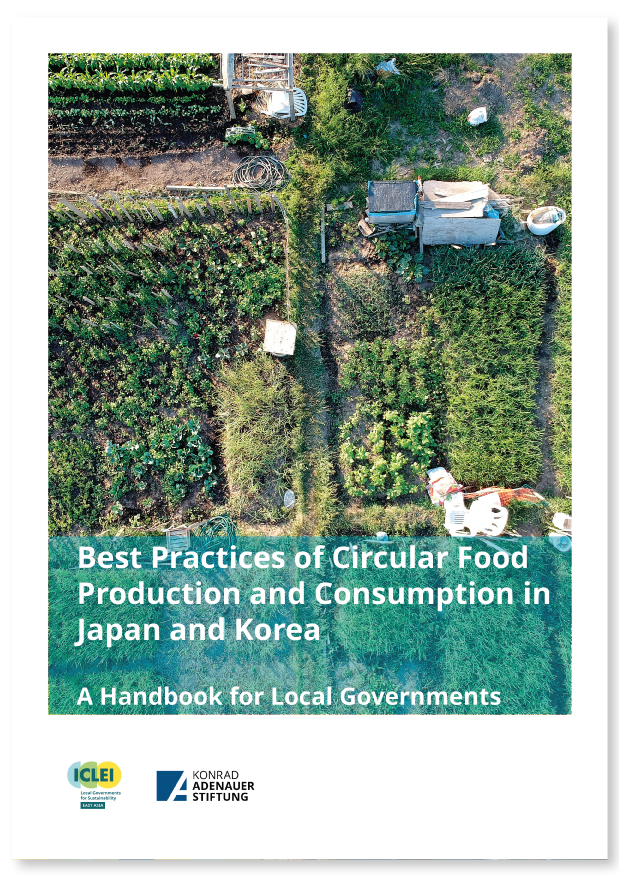Best practices of circular food production and consumption in Japan and Korea: a handbook for local governments
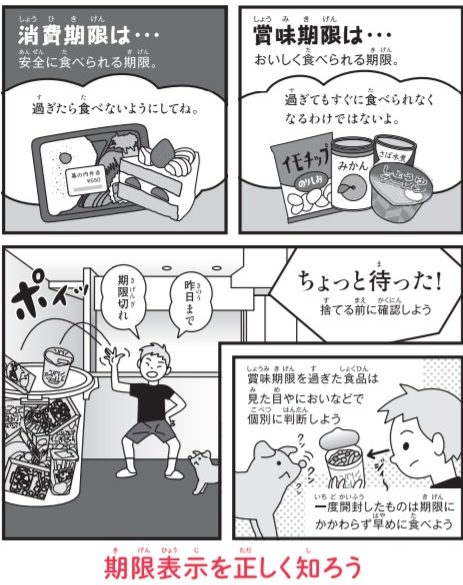
The drawbacks of the current linear and unsustainable food system are well known. Especially, with food being transported further than ever before, it has led to an increasing amount of greenhouse gases emissions from international and local logistics. However, about one-third of the world’s food is lost and wasted annually. Food waste rotting in landfills releases methane — a more potent greenhouse gas than carbon dioxide. The COVID-19 pandemic aggravates food supply chain disruptions in urban centers and the increase in food waste. Our food system is at risk, and so does the environment and human beings.
Cities have a unique position to drive the transformation towards a more circular and sustainable food system. By 2050, 68% of the world population will live in cities, comsuming 80% of all food produced globally. Thus, local governments have significant opportunities to influence the food system for sustainability and circularity through interacting and collaborating with urban stakeholders.
ICLEI’s circular development pathway supports local governments in improving human well-being, achieving climate neutrality, protecting biodiversity, and promoting social justice. To assist and co-work with local governments through the circular journey, ICLEI and partners developed the Circular City Actions Framework and launched the online platform ICLEI Circulars during the ICLEI World Congress 2021-2022. In addition, noticing the pressing need for circular food system transitions, the ICLEI World Secretariat has also published the City Practitioners Handbook: Circular Food Systems, featuring concrete tools, experiences, and learnings on circular food systems from 50 local governments globally.
Funded by the Konrad Adenauer Foundation, ICLEI East Asia conducted a research project in 2020, which thoroughly reviewed the urban food circular economy practices in Seoul, Hiroshima, and Sapporo through a circular lens. With contributions from the local governments, the project result has been synthesized as the publication Best Practices of Circular Food Production and Consumption in Japan and Korea: A Handbook for Local Governments. By diving into the strategies, actions, and interventions for regenerating urban farming and reducing food loss and waste for a more circular urban food system in the three East Asian cities, the handbook provides detailed step-by-step practical references for other local and regional governments in the region and beyond.
Download the Handbook
Seoul, the capital of South Korea, is actively upscaling urban agriculture and closing its resource loop. Initiated in 2012 with support from stakeholders, the city’s Urban Agriculture Master Plan sets ambitious goals and measurable targets to increase urban farms and participants. The clear messaging and shared vision successfully triggered actions citywide: semi-government housing companies collaborate with residents and establish a closed-loop farm in communities; abandoned spaces inside metro stations are transformed into indoor vertical hydroponic farms to shorten food supply chains, and a one-stop center has been established, where the general public can easily access technical assistance and knowledge supported by professional and certified urban agriculture experts. The handbook has not only outlined how Seoul reaches success but has also presented the potential opportunities brought by the global pandemic.
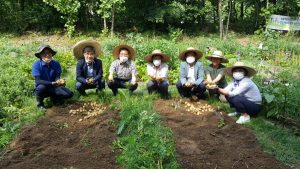
Seoul has the ambition to become the world’s capital of urban agriculture / Source: cityfarmers.seoul.go.kr
On the other hand, cities in Japan are eagerly combating food loss and waste. Built upon the success of waste management, this time, both the central and subnational governments in Japan are putting their hearts and soul into preventing resources from falling to waste. For instance, the city government of Hiroshima provides guidance and collaborates with restaurants and retailers through a voluntary-based initiative to maximize the potential to reduce food loss. Awareness campaigns and knowledge-sharing activities targeting households are also being organized with the support of educational institutions and consumer associations. Sapporo city wisely utilizes various media channels and platforms to disseminate good practices of food storage and stock management. The featured cases in the handbook presented how the two cities have been subtly influencing their residents for behavior change without giving direct instructions on “what to do”.
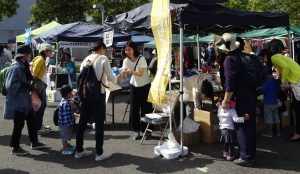
Food Drive activities in Hiroshima City encourage citizens to donate “untouched, yet unwanted food”
to those most in need / Source: Hiroshima City Government
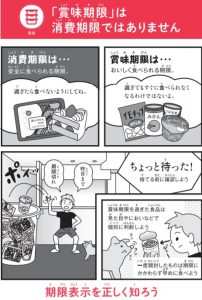
The Sapporo City Government developed various campaign materials to raise public
awareness on preventing food waste / Source: Sapporo City Government
A circular food system is promising, but cities often find themselves mired in its complexity. This handbook showcases practical tools and instruments— including planning, communication, education, collaboration, and financing from the three cities, and will provide invaluable references for other local and regional governments, as well as relevant urban actors to develop their own localized approaches that lead to sustainable, resilient, and circular food systems.
ICLEI’s Green Circular Cities Coalition
Launched by ICLEI East Asia in 2019, the Green Circular Cities Coalition presents a platform to connect cities, experts, businesses, and relevant stakeholders to shift the mindset from “waste management” to “resource management”.
ICLEI East Asia is currently reviewing the priorities of the 6 Coalition member cities through interviews and consultations and will update the Coalition’s strategies and work plans accordingly. The Coalition will continue to provide peer-to-peer learning and knowledge exchange opportunities to ICLEI member cities in East Asia.


